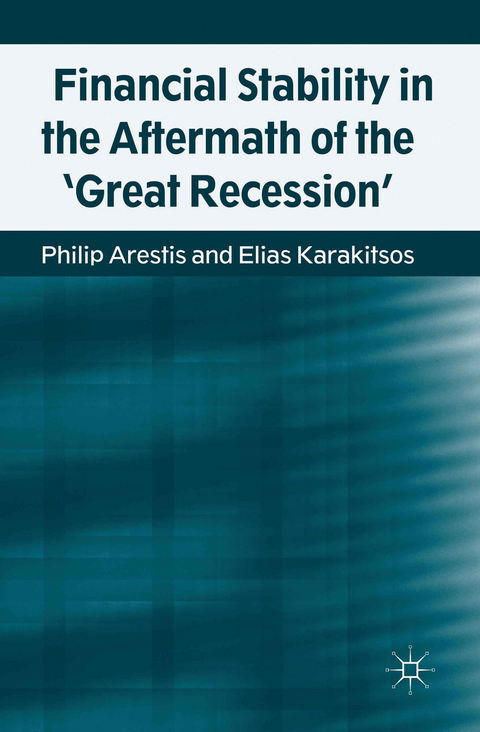
Financial Stability in the Aftermath of the 'Great Recession'
Palgrave Macmillan (Verlag)
978-1-137-33395-7 (ISBN)
Philip Arestis is Director of Research, Cambridge Centre for Economics and Public Policy, Department of Land Economy, University of Cambridge, UK; Professor of Economics, Department of Applied Economics V, University of the Basque Country, Spain; Distinguished Adjunct Professor of Economics, Department of Economics, University of Utah, US; Senior Scholar, Levy Economics Institute, New York, US; Visiting Professor, Leeds Business School, University of Leeds, UK; Professorial Research Associate, Department of Finance and Management Studies, School of Oriental and African Studies (SOAS), University of London, UK; and current holder of the British Hispanic Foundation 'Queen Victoria Eugenia' British Hispanic Chair of Doctoral Studies. He is Chief Academic Adviser to the UK Government Economic Service (GES) on Professional Developments in Economics. He has published as sole author or editor, as well as co-author and co-editor, a number of books, contributed in the form of invited chapters to numerous books, produced research reports for research institutes, and has published widely in academic journals. Elias Karakitsos is chairman of Global Economic Research, a think tank for the world economy, financial markets and shipping, and Associate Member of the Centre for Economic and Public Policy, University of Cambridge. He was a professor at Imperial College, Head of Economics for 10 years and has acted as an advisor to the House of Commons, the UK, US and EU governments and financial institutions, including Citigroup, Oppenheimer, Allianz, Crédit Agricole and Standard Chartered. He is the author of five books/monographs, 90 papers in learned journals and more than 500 reports on the world economy financial markets and shipping.
1. Introduction 2. Origins of the 'Great Recession' 3. The Theoretical Framework that Underpins the Origins of the 'Great Recession' 4. Too Much Liquidity: The Source of the Trouble 5. Anaemic Recovery: The US Housing Market and the Consumer 6. Anaemic Recovery: The Vicious Circle of Investment and Consumption 7. The Sovereign Debt Crisis 8. Lessons from the 'Great Recession' for both Theory and Economic Policy 9. Financial Stability and Proposals to Restore It
| Erscheint lt. Verlag | 4.10.2013 |
|---|---|
| Zusatzinfo | VII, 260 p. |
| Verlagsort | Basingstoke |
| Sprache | englisch |
| Maße | 140 x 216 mm |
| Themenwelt | Wirtschaft ► Allgemeines / Lexika |
| Wirtschaft ► Volkswirtschaftslehre ► Finanzwissenschaft | |
| Wirtschaft ► Volkswirtschaftslehre ► Makroökonomie | |
| Wirtschaft ► Volkswirtschaftslehre ► Mikroökonomie | |
| ISBN-10 | 1-137-33395-2 / 1137333952 |
| ISBN-13 | 978-1-137-33395-7 / 9781137333957 |
| Zustand | Neuware |
| Haben Sie eine Frage zum Produkt? |
aus dem Bereich


